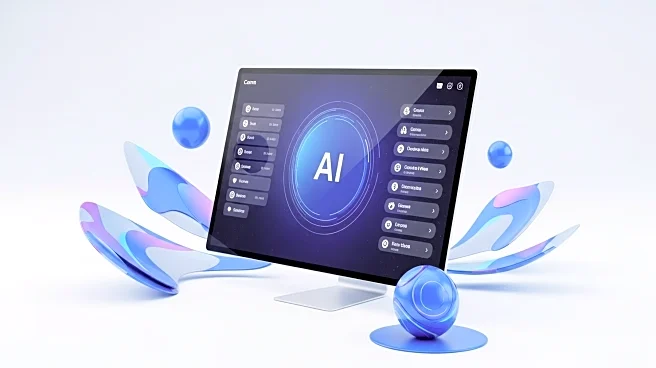What's Happening?
Artificial intelligence is reshaping the legal profession by offering new opportunities for junior lawyers to engage in strategic insight excavation rather than traditional document review. AI strategist Sol Rashidi highlights the increased need for collaboration, emphasizing that AI adoption must be paired with human training and mentorship. The technology allows junior lawyers to use prompt engineering to extract and synthesize information, identifying patterns and generating strategic frameworks that enhance legal teams' capabilities. This shift positions junior lawyers as strategic thinkers, leveraging AI to complement the judgment and experience of senior lawyers.
Why It's Important?
The integration of AI in legal practice represents a significant transformation, potentially broadening the reach and efficiency of legal teams while reducing costs. Junior lawyers stand to gain by developing skills in prompt engineering, which can differentiate them in hiring and career advancement. However, the use of AI also necessitates rigorous validation processes to safeguard against inaccuracies, such as AI hallucinations. Legal teams must balance innovation with structured skepticism to ensure AI tools enhance rather than undermine professional standards. This evolution in legal practice could redefine the roles and responsibilities within legal teams, impacting training and mentorship dynamics.
What's Next?
As AI tools become more prevalent, legal teams are expected to continue experimenting with and refining prompt engineering techniques. General counsels will likely focus on building AI-capable organizations, fostering a culture of collaboration between junior and senior lawyers. This approach aims to harness AI's potential while maintaining professional excellence. The ongoing development of AI in legal practice may lead to new competitive dynamics in the external legal services market, potentially affecting mid-market firms. Legal departments will need to adapt to these changes, ensuring AI serves as a gateway to strategic value creation.
Beyond the Headlines
The ethical and cultural implications of AI in legal practice are significant. As AI tools become integral to legal strategy, there is a need to address potential biases and ensure accountability in AI-generated outputs. The cultural transformation within legal teams requires open-minded leadership to drive AI adoption and address resistance. This shift may redefine the identity of legal professionals, emphasizing augmented intelligence and collaboration. The long-term impact of AI on the legal profession could lead to a reevaluation of traditional roles and the emergence of new strategic capabilities.










